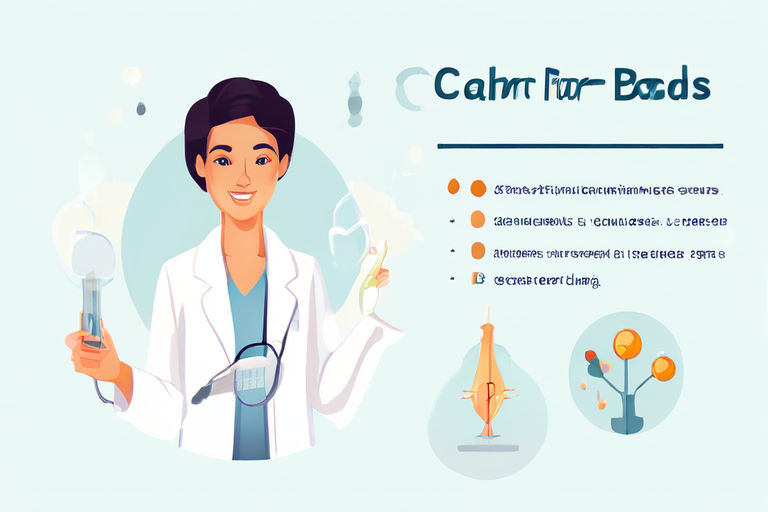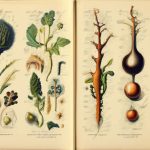Introduction
- Introduction
- Academic and Research Careers
- Healthcare and Clinical Careers
- Environmental and Conservation Careers
- Biotechnology and Pharmaceutical Careers
- Agriculture and Food Industry Careers
- Education and Outreach Careers
- Forensic and Legal Careers
- Other Unique Biology Careers
- Skills and Education Required
- Challenges and Rewards in Biology Careers
- Future Trends in Biology Careers
- Conclusion
- FAQs
Biology, the study of living organisms, is a field that profoundly impacts our understanding of the world and our place in it. It delves into the complexities of life, from the microscopic workings of cells to the vast ecosystems that support diverse forms of life. The importance of biology cannot be overstated, as it underpins advancements in medicine, environmental conservation, agriculture, and many other areas that directly affect our daily lives and future sustainability.
The Importance of Biology
Biology helps us understand the structure, function, growth, origin, evolution, and distribution of living organisms. This knowledge is crucial for developing medical innovations, improving health outcomes, conserving biodiversity, and addressing environmental challenges. Without the insights gained from biology, our ability to respond to global issues like climate change, pandemics, and food security would be severely limited.
Overview of Career Opportunities in Biology
The field of biology offers a wide array of career opportunities, each with its unique contributions to society. Whether you’re interested in conducting groundbreaking research, working directly with patients, conserving natural habitats, or educating the next generation, there is a career path in biology that can match your passion and skills. Let’s explore some of these diverse career opportunities.
Academic and Research Careers
University Professor
Becoming a university professor is an excellent career choice for those who are passionate about teaching and research. Professors play a critical role in educating the next generation of scientists and conducting original research. They typically hold a PhD and have extensive knowledge in their field of study. Professors are responsible for designing and teaching courses, mentoring students, and publishing research findings in scientific journals.
Research Scientist
Research scientists focus on conducting experiments and studies to advance our understanding of various biological phenomena. They can work in academic institutions, private research organizations, or government agencies.
Roles in Academic Institutions
In academic institutions, research scientists often collaborate with other faculty members and students. They may work on basic research projects aimed at uncovering new knowledge about biological processes. Their findings can lead to advancements in medicine, technology, and environmental science.
Roles in Private Research Institutions
In private research institutions, scientists typically focus on applied research. They work on developing new products, technologies, or therapies that have practical applications. These roles often require collaboration with industry partners and may involve working on projects that are more commercially driven.
Laboratory Technician
Laboratory technicians are essential members of the research team. They perform experiments, collect and analyze data, and maintain laboratory equipment. This role is ideal for individuals who enjoy hands-on work and have strong technical skills. Laboratory technicians typically hold a bachelor’s degree in biology or a related field and work under the supervision of senior researchers.
Healthcare and Clinical Careers
Medical Doctor
Becoming a medical doctor is one of the most impactful careers in biology. Doctors diagnose and treat illnesses, improve patient health, and contribute to medical research.
General Practitioners
General practitioners (GPs) provide primary care to patients of all ages. They diagnose and treat a wide range of health conditions, offer preventive care, and refer patients to specialists when necessary. GPs are often the first point of contact in the healthcare system and play a crucial role in maintaining community health.
Specialists
Specialists focus on specific areas of medicine, such as cardiology, neurology, or oncology. They undergo additional training and education to develop expertise in their chosen field. Specialists diagnose and treat complex medical conditions, perform specialized procedures, and conduct research to advance their area of medicine.
Biomedical Scientist
Biomedical scientists conduct research to understand diseases and develop new treatments. They work in laboratories and often collaborate with healthcare professionals to improve patient outcomes. Biomedical scientists analyze biological samples, study pathogens, and contribute to the development of vaccines, medications, and diagnostic tools. This career typically requires a master’s degree or PhD in biomedical science or a related field.
Clinical Research Coordinator
Clinical research coordinators manage clinical trials, ensuring that new treatments are tested safely and effectively. They oversee the day-to-day operations of clinical studies, including participant recruitment, data collection, and regulatory compliance. Clinical research coordinators work closely with researchers, healthcare providers, and participants to ensure that studies are conducted ethically and efficiently. This role often requires a background in nursing, biology, or a related field, along with strong organizational and communication skills.
Environmental and Conservation Careers
Environmental Scientist
Environmental scientists study the impact of human activities on the environment and develop strategies to protect natural resources. They analyze environmental data, conduct field research, and work with policymakers to create sustainable solutions. Environmental scientists play a critical role in addressing issues like climate change, pollution, and habitat destruction. They often work for government agencies, non-profit organizations, or private companies.
Conservation Biologist
Conservation biologists focus on preserving biodiversity and protecting endangered species and their habitats. They conduct field research to monitor wildlife populations, study the effects of environmental changes, and develop conservation plans. Conservation biologists work with governments, non-profits, and communities to implement strategies that promote sustainable practices and protect natural ecosystems.
Wildlife Biologist
Wildlife biologists study animals and their interactions with ecosystems. They conduct research on animal behavior, genetics, and population dynamics. Wildlife biologists often work in the field, collecting data and observing animals in their natural habitats. Their research helps inform conservation efforts, wildlife management practices, and environmental policies. They may work for government agencies, conservation organizations, or research institutions.
Biotechnology and Pharmaceutical Careers
Biotechnologist
Biotechnologists use living organisms to develop products and technologies that benefit society. They work in various fields, including healthcare, agriculture, and environmental management. Biotechnologists conduct research to develop new drugs, improve crop yields, and create sustainable biofuels. This career typically requires a degree in biotechnology, biology, or a related field, along with strong analytical and technical skills.
Pharmaceutical Sales Representative
Pharmaceutical sales representatives serve as the link between pharmaceutical companies and healthcare providers. They promote new medications and medical devices, providing essential information to doctors, pharmacists, and other healthcare professionals. Sales representatives must have a deep understanding of the products they are selling and be able to communicate effectively. This role often requires a background in biology or a related field, along with excellent interpersonal and sales skills.
Quality Control Analyst
Quality control analysts ensure that products meet the required standards of quality and safety. They work in various industries, including pharmaceuticals and biotechnology, where they test raw materials, intermediate products, and finished goods. Quality control analysts use laboratory equipment to conduct tests and analyze results, ensuring compliance with regulatory standards. This role requires a strong attention to detail, technical expertise, and a background in biology or a related field.
Agriculture and Food Industry Careers
The fields of agriculture and food industry offer diverse and rewarding career opportunities for individuals passionate about biology. From ensuring food safety to optimizing crop production, professionals in these fields play a vital role in feeding the world’s population and promoting sustainable practices. Here are some key careers in agriculture and the food industry:
Agricultural Scientist
Agricultural scientists, also known as agronomists or crop scientists, study plant biology, soil science, and agricultural techniques to improve crop production and sustainability. They conduct research to develop new crop varieties, optimize farming practices, and mitigate environmental impacts. Agricultural scientists work closely with farmers, government agencies, and agricultural companies to address challenges such as climate change, pests, and soil degradation. Their work contributes to increasing food production while minimizing the use of resources and environmental damage.
Food Safety Analyst
Food safety analysts play a crucial role in ensuring the quality and safety of food products. They monitor food production processes, conduct inspections, and analyze samples to detect contaminants, pathogens, and other hazards. Food safety analysts follow strict regulatory guidelines to prevent foodborne illnesses and maintain public health. They work for government agencies, food manufacturers, and quality control laboratories, implementing measures to prevent contamination and ensure compliance with food safety standards. Their work helps safeguard the food supply chain and protect consumers from foodborne diseases.
Plant Biologist
Plant biologists study the biology, genetics, and physiology of plants to improve agricultural productivity, conservation efforts, and environmental sustainability. They investigate plant growth and development, analyze plant genetics, and develop strategies to enhance crop yields, resilience, and nutritional value. Plant biologists also study plant interactions with the environment, including responses to climate change, pests, and diseases. They work in research institutions, universities, government agencies, and agricultural companies, contributing to innovations in plant breeding, biotechnology, and sustainable agriculture practices. Plant biologists play a critical role in addressing global challenges such as food security, biodiversity loss, and climate change adaptation.
These careers offer exciting opportunities to make a meaningful impact on global food security, environmental sustainability, and public health. Whether you’re passionate about improving crop production, ensuring food safety, or conserving natural resources, there’s a rewarding career waiting for you in the agriculture and food industry.
Education and Outreach Careers
The field of education and outreach in biology offers fulfilling opportunities for individuals passionate about sharing scientific knowledge and inspiring the next generation of scientists. From teaching high school biology to engaging the public through science communication, professionals in these roles play a crucial role in fostering curiosity, understanding, and appreciation for the natural world. Here are three key careers in education and outreach:
High School Biology Teacher
High school biology teachers play a vital role in educating students about fundamental biological concepts, processes, and principles. They design engaging lesson plans, conduct laboratory experiments, and facilitate discussions to help students develop a deep understanding of topics such as genetics, evolution, ecology, and physiology. High school biology teachers also mentor students, provide academic support, and foster critical thinking and scientific inquiry skills. By inspiring curiosity and passion for biology, they empower students to pursue further studies and careers in science-related fields.
Science Communicator
Science communicators bridge the gap between scientists and the public by translating complex scientific concepts into accessible and engaging content. They use various media platforms, including television, radio, podcasts, websites, and social media, to communicate scientific discoveries, research findings, and the importance of science in everyday life. Science communicators develop educational programs, write articles and blogs, produce videos and multimedia presentations, and organize public events such as science festivals and outreach activities. By making science relatable and understandable, they inspire curiosity and encourage informed decision-making among diverse audiences.
Museum Educator
Museum educators create interactive learning experiences that engage visitors with exhibits, artifacts, and scientific collections. They develop educational programs, guided tours, and hands-on activities that encourage exploration, discovery, and understanding of biological concepts and natural history. Museum educators collaborate with curators, scientists, and exhibit designers to develop content that aligns with educational standards and addresses the interests and needs of diverse audiences, including school groups, families, and the general public. By fostering curiosity and appreciation for the natural world, museum educators inspire lifelong learning and environmental stewardship.
These careers offer rewarding opportunities to make a positive impact on society by promoting scientific literacy, curiosity, and appreciation for the natural world. Whether you’re passionate about teaching, science communication, or informal education, there’s a fulfilling career waiting for you in education and outreach in biology.
Forensic and Legal Careers
The intersection of biology with forensic science and the legal system offers intriguing career paths for individuals interested in applying scientific principles to solve crimes, protect the environment, and navigate intellectual property laws. Here are three significant careers in forensic and legal fields:
Forensic Scientist
Forensic scientists play a critical role in criminal investigations by analyzing physical evidence to uncover facts and establish connections between individuals and crime scenes. They utilize various scientific techniques, including DNA analysis, fingerprinting, toxicology, and ballistics, to provide objective and reliable evidence in court proceedings. Forensic scientists work closely with law enforcement agencies, medical examiners, and legal professionals to gather, analyze, and interpret evidence that can support criminal prosecutions or exonerate individuals wrongly accused of crimes. Their expertise contributes to the administration of justice and ensures the integrity of the legal process.
Environmental Lawyer
Environmental lawyers specialize in legal matters related to environmental protection, conservation, and sustainability. They advocate for compliance with environmental regulations, represent clients in environmental litigation cases, and provide legal counsel on issues such as pollution control, land use planning, and natural resource management. Environmental lawyers work for government agencies, non-profit organizations, corporations, and private law firms, addressing complex legal challenges that impact ecosystems, public health, and community well-being. Their work contributes to shaping environmental policies, promoting environmental justice, and safeguarding the planet for future generations.
Patent Examiner
Patent examiners play a crucial role in the intellectual property system by evaluating patent applications to determine whether inventions meet the criteria for patentability. They conduct thorough examinations of technical documents, research literature, and patent databases to assess the novelty, utility, and non-obviousness of inventions in various fields, including biology, biotechnology, and pharmaceuticals. Patent examiners work for government patent offices, reviewing applications, conducting prior art searches, and issuing patentability determinations. Their expertise ensures that patents granted reflect genuine innovations and contribute to scientific progress, economic growth, and technological advancement.
These careers offer diverse opportunities to apply biological knowledge and analytical skills in forensic investigations, legal advocacy, and intellectual property protection. Whether you’re interested in solving crimes, advocating for environmental conservation, or facilitating innovation, there’s a rewarding career waiting for you in forensic and legal fields.
Other Unique Biology Careers
Beyond the traditional realms of biology, there are several unique and specialized career paths that offer exciting opportunities to explore diverse aspects of the natural world and contribute to scientific advancements. Here are three distinctive careers in biology:
Marine Biologist
Marine biologists study the biology, ecology, and behavior of marine organisms in oceans, seas, and other aquatic environments. They conduct research on a wide range of marine life, including fish, marine mammals, corals, and plankton, to understand their adaptations to aquatic environments, ecological roles, and responses to environmental changes. Marine biologists may specialize in areas such as marine conservation, fisheries management, marine ecology, or marine mammal behavior. They work in various settings, including research institutions, government agencies, aquariums, and conservation organizations, conducting fieldwork, collecting data, and contributing to marine conservation efforts and sustainable management of marine resources.
Bioinformatician
Bioinformaticians play a crucial role in biological research by applying computational and statistical methods to analyze biological data, such as DNA sequences, protein structures, and gene expression profiles. They develop algorithms, software tools, and databases to store, manage, and analyze large-scale biological datasets, helping researchers extract meaningful insights and identify patterns and relationships within complex biological systems. Bioinformaticians work at the intersection of biology, computer science, and statistics, collaborating with biologists, geneticists, and clinicians to address fundamental questions in genomics, evolutionary biology, drug discovery, and personalized medicine. Their expertise enables advancements in fields such as genomic sequencing, systems biology, and precision medicine, driving innovation and discoveries in the life sciences.
Biostatistician
Biostatisticians specialize in the design, analysis, and interpretation of data from biomedical and public health studies. They develop statistical methods and models to analyze biological and health-related data, including clinical trials, epidemiological studies, and population surveys, to understand disease patterns, risk factors, and treatment outcomes. Biostatisticians collaborate with researchers, healthcare professionals, and policymakers to design studies, collect data, and draw valid conclusions from research findings. They play a critical role in ensuring the reliability and validity of scientific research, informing healthcare decision-making, and advancing public health interventions. Biostatisticians work in academic institutions, research organizations, government agencies, and pharmaceutical companies, contributing to advancements in medical research, disease prevention, and healthcare policy.
These unique biology careers offer exciting opportunities to explore specialized areas of study, apply advanced scientific techniques, and make meaningful contributions to understanding the natural world, improving human health, and conserving biodiversity.
Skills and Education Required
To pursue a career in biology, it’s essential to acquire the right education, develop key skills, and engage in continuous learning to stay updated with advancements in the field. Here are the degree requirements, essential skills, and the importance of continuous learning and certifications:
Degree Requirements
- Bachelor’s Degree: Most entry-level positions in biology require a bachelor’s degree in biology or a related field such as biochemistry, microbiology, or genetics. A bachelor’s degree provides foundational knowledge in biological principles, laboratory techniques, and scientific research methods.
- Advanced Degrees: For specialized or advanced roles in biology, such as research scientist, professor, or biotechnologist, obtaining an advanced degree is often necessary. A master’s degree or Ph.D. in biology or a specific subfield allows for in-depth study, research experience, and specialization in a particular area of interest.
Essential Skills
- Analytical Skills: Biologists must be able to analyze complex biological data, interpret research findings, and draw meaningful conclusions. Strong analytical skills are essential for designing experiments, troubleshooting problems, and making evidence-based decisions.
- Critical Thinking: Biologists need to think critically, evaluate scientific evidence, and apply logical reasoning to solve problems and make sound judgments. Critical thinking skills are crucial for conducting research, designing experiments, and identifying patterns in biological phenomena.
- Communication Skills: Effective communication is essential for biologists to convey complex scientific concepts to diverse audiences, including colleagues, students, policymakers, and the general public. Biologists must be able to write clear and concise reports, present research findings, and engage in scientific discourse.
- Teamwork: Many biology careers involve collaborative research projects, interdisciplinary teams, and partnerships with other scientists and professionals. Biologists need strong teamwork skills to collaborate effectively, share ideas, and work towards common goals.
- Technical Skills: Biologists must have proficiency in laboratory techniques, experimental protocols, and scientific instrumentation relevant to their area of specialization. Technical skills such as molecular biology techniques, microscopy, data analysis software, and laboratory safety protocols are essential for conducting research and experiments.
Continuous Learning and Certifications
- Professional Development: Biology is a rapidly evolving field with new discoveries, technologies, and methodologies emerging constantly. Continuous learning through professional development activities such as attending conferences, workshops, and seminars, and staying updated with scientific literature is essential for biologists to remain current and informed in their field.
- Certifications: Depending on the specific career path and area of specialization, obtaining certifications can enhance a biologist’s credentials and career prospects. Certifications in areas such as laboratory safety, research ethics, specialized laboratory techniques, or professional credentials in specific subfields of biology can demonstrate expertise and competency to employers.
By acquiring the necessary education, developing essential skills, and engaging in continuous learning and certifications, aspiring biologists can build successful and fulfilling careers in various sectors of biology, from research and academia to healthcare, environmental conservation, and beyond.
Challenges and Rewards in Biology Careers
Embarking on a career in biology offers numerous opportunities for exploration, discovery, and making a positive impact on the world. However, like any profession, biology careers come with their own set of challenges and rewards. Here are some of the key challenges faced by professionals in biology careers, as well as the rewards and job satisfaction that come with pursuing a career in this field:
Challenges in Biology Careers
- Competitive Funding: Securing research funding can be highly competitive, particularly in academia and research institutions. Biologists often face challenges in obtaining grants to support their research projects, which can limit their ability to pursue innovative studies and advance scientific knowledge.
- Complexity of Biological Systems: Biological systems are inherently complex, presenting challenges in understanding the intricate interactions between genes, proteins, cells, and organisms. Biologists must grapple with the complexity of biological phenomena, which can be daunting and require interdisciplinary approaches and collaboration to unravel.
- Ethical Considerations: Many areas of biology, such as genetic engineering, stem cell research, and animal experimentation, raise ethical dilemmas and concerns. Biologists must navigate complex ethical considerations and adhere to ethical guidelines and regulations in their research and professional practices.
- Work-Life Balance: Careers in biology, particularly in research and academia, can be demanding and require long hours of work in laboratory settings or fieldwork. Achieving a healthy work-life balance can be challenging, especially when facing tight deadlines, grant deadlines, or teaching responsibilities.
- Environmental and Political Pressures: Biologists working in fields such as environmental conservation and wildlife biology may face challenges related to habitat destruction, climate change, and political pressures. Balancing conservation goals with economic interests and navigating policy decisions can be complex and challenging.
Rewards and Job Satisfaction
- Contributing to Scientific Advancements: One of the most rewarding aspects of biology careers is the opportunity to contribute to scientific advancements and discoveries that have real-world implications. Whether it’s uncovering new insights into disease mechanisms, developing sustainable agricultural practices, or discovering new species, biologists play a vital role in advancing scientific knowledge and addressing global challenges.
- Making a Positive Impact: Biology careers offer the chance to make a positive impact on society and the environment. Whether through healthcare advancements, environmental conservation efforts, or education and outreach initiatives, biologists have the opportunity to improve human health, protect biodiversity, and promote sustainable living practices.
- Intellectual Stimulation: Biology careers provide intellectual stimulation and opportunities for lifelong learning. Biologists are constantly challenged to think critically, solve complex problems, and adapt to new technologies and methodologies, keeping their work engaging and fulfilling.
- Career Diversity: The field of biology offers diverse career paths and opportunities for specialization. Whether in research, healthcare, education, environmental conservation, or industry, biologists can pursue careers that align with their interests, passions, and strengths, providing flexibility and variety in their professional pursuits.
- Personal Fulfillment: For many biologists, the intrinsic rewards of pursuing a career in biology stem from a deep passion for understanding the natural world and a sense of fulfillment in contributing to scientific knowledge and societal well-being. The opportunity to engage in meaningful work that aligns with personal values and interests can bring immense job satisfaction and fulfillment.
Despite the challenges, the rewards and job satisfaction associated with careers in biology make it a rewarding and fulfilling field for those passionate about exploring the mysteries of life and making a positive impact on the world.

Future Trends in Biology Careers
As technology advances and new scientific discoveries reshape our understanding of the natural world, the landscape of biology careers continues to evolve. Here are some future trends shaping the field of biology and the potential impact on careers:
Impact of Technology
- Genomic Revolution: The rapid advancement of DNA sequencing technologies has ushered in a genomic revolution, enabling scientists to decode entire genomes quickly and cost-effectively. This trend is expected to continue, leading to widespread applications in personalized medicine, agricultural biotechnology, and evolutionary biology. Careers in bioinformatics, genomic medicine, and genetic counseling are poised for significant growth as genomics becomes increasingly integrated into healthcare and research.
- Big Data and Data Analytics: The explosion of biological data from genomic sequencing, imaging techniques, and high-throughput experiments has created a demand for professionals skilled in big data analytics and bioinformatics. Biologists with expertise in data science, machine learning, and computational biology will be essential for analyzing and interpreting large datasets, identifying patterns, and extracting meaningful insights from complex biological systems.
- Precision Medicine: Advances in molecular biology, genomics, and personalized medicine are driving the development of targeted therapies tailored to individual patients’ genetic profiles. Careers in precision medicine, including pharmacogenomics, genetic counseling, and biomarker discovery, are expected to expand as personalized approaches to healthcare become more prevalent.
Emerging Fields
- Synthetic Biology: The field of synthetic biology is revolutionizing biotechnology by applying engineering principles to design and construct novel biological systems with desired functions. Synthetic biologists engineer organisms to produce biofuels, pharmaceuticals, and biodegradable materials, among other applications. Careers in synthetic biology offer opportunities for innovation in bioengineering, metabolic engineering, and biomanufacturing.
- Neurobiology and Brain Research: With growing interest and investment in understanding the human brain, careers in neurobiology and neuroscience are poised for growth. Advances in imaging technologies, optogenetics, and neural engineering are driving breakthroughs in brain research, leading to insights into brain function, neural circuits, and neurological disorders. Careers in neurobiology offer opportunities for studying brain development, cognition, and neurological diseases such as Alzheimer’s and Parkinson’s.
- Environmental Sustainability: As concerns about climate change and environmental degradation mount, careers in environmental biology and sustainability are becoming increasingly important. Biologists are working to develop sustainable solutions for renewable energy, waste management, and conservation of natural resources. Careers in environmental biology offer opportunities for studying ecosystems, biodiversity conservation, and mitigating the impacts of human activities on the environment.
Conclusion
In conclusion, the field of biology offers a vast array of career opportunities for individuals passionate about exploring the mysteries of life, making scientific discoveries, and addressing global challenges. From traditional roles in research and academia to emerging fields such as synthetic biology and precision medicine, biology careers provide diverse pathways for personal and professional growth.
Summary of Career Opportunities
Throughout this article, we’ve explored various career paths in biology, including:
- Academic and Research Careers
- Healthcare and Clinical Careers
- Environmental and Conservation Careers
- Biotechnology and Pharmaceutical Careers
- Agriculture and Food Industry Careers
- Education and Outreach Careers
- Forensic and Legal Careers
- Other Unique Biology Careers
These careers span a wide range of sectors, from healthcare and environmental conservation to biotechnology and education, offering opportunities to contribute to scientific knowledge, improve human health, and protect the environment.
Encouragement to Explore Biology Careers
As we look to the future, the demand for skilled biologists continues to grow, driven by advancements in technology, increasing global challenges, and the need for innovative solutions. I encourage anyone with an interest in biology to explore the diverse career paths available and consider how they can make a meaningful impact in their chosen field.
Whether you’re passionate about conducting research, teaching future generations, protecting the environment, or advancing healthcare, there’s a biology career waiting for you. Embrace the challenges, pursue your passions, and seize the opportunities to contribute to the exciting and dynamic field of biology.
Remember, the journey towards a rewarding career in biology begins with curiosity, determination, and a willingness to explore the wonders of the natural world.
FAQs
1. What is the highest-paying job in biology?
The highest-paying job in biology often depends on factors such as specialization, experience, and location. However, some of the highest-paying roles in biology include:
- Medical professionals, such as physicians and surgeons, particularly those specializing in fields like neurosurgery or orthopedic surgery.
- Pharmaceutical executives and directors in research and development.
- Biotechnology researchers and executives, especially those involved in developing breakthrough therapies or technologies.
- Academic professors and researchers with prestigious appointments or in-demand expertise.
2. Do I need a PhD for a career in biology?
While a Ph.D. can open up many opportunities in biology, it’s not always required for entry-level positions. Many careers in biology, such as laboratory technicians, research assistants, and science educators, can be pursued with a bachelor’s or master’s degree. However, a Ph.D. is typically necessary for advanced research positions, university faculty positions, and leadership roles in industry.
3. Can I switch from another field to biology?
Yes, it’s possible to switch from another field to biology, but it may require additional education or training depending on your background and career goals. Individuals with backgrounds in fields such as chemistry, physics, computer science, or engineering may find opportunities to transition into biology-related roles through further education, certification programs, or on-the-job training.
4. What soft skills are important in biology careers?
Soft skills are essential for success in biology careers and include:
- Communication skills for presenting research findings, collaborating with colleagues, and engaging with stakeholders.
- Critical thinking and problem-solving skills for analyzing data, designing experiments, and making informed decisions.
- Teamwork and collaboration skills for working effectively in interdisciplinary teams and fostering a positive work environment.
- Adaptability and flexibility to navigate changing research priorities, technologies, and career paths.
- Time management and organizational skills for balancing multiple projects, meeting deadlines, and prioritizing tasks effectively.
5. How can I find job opportunities in biology?
There are several ways to find job opportunities in biology:
- Utilize online job boards and career websites specializing in biology-related fields.
- Network with professionals in the field through conferences, workshops, and professional associations.
- Explore job postings on university and research institution websites.
- Consider internships, volunteer opportunities, or research assistant positions to gain experience and build connections.
- Connect with career services at your educational institution or seek guidance from mentors and advisors in the field.




















No Comments
Leave a comment Cancel